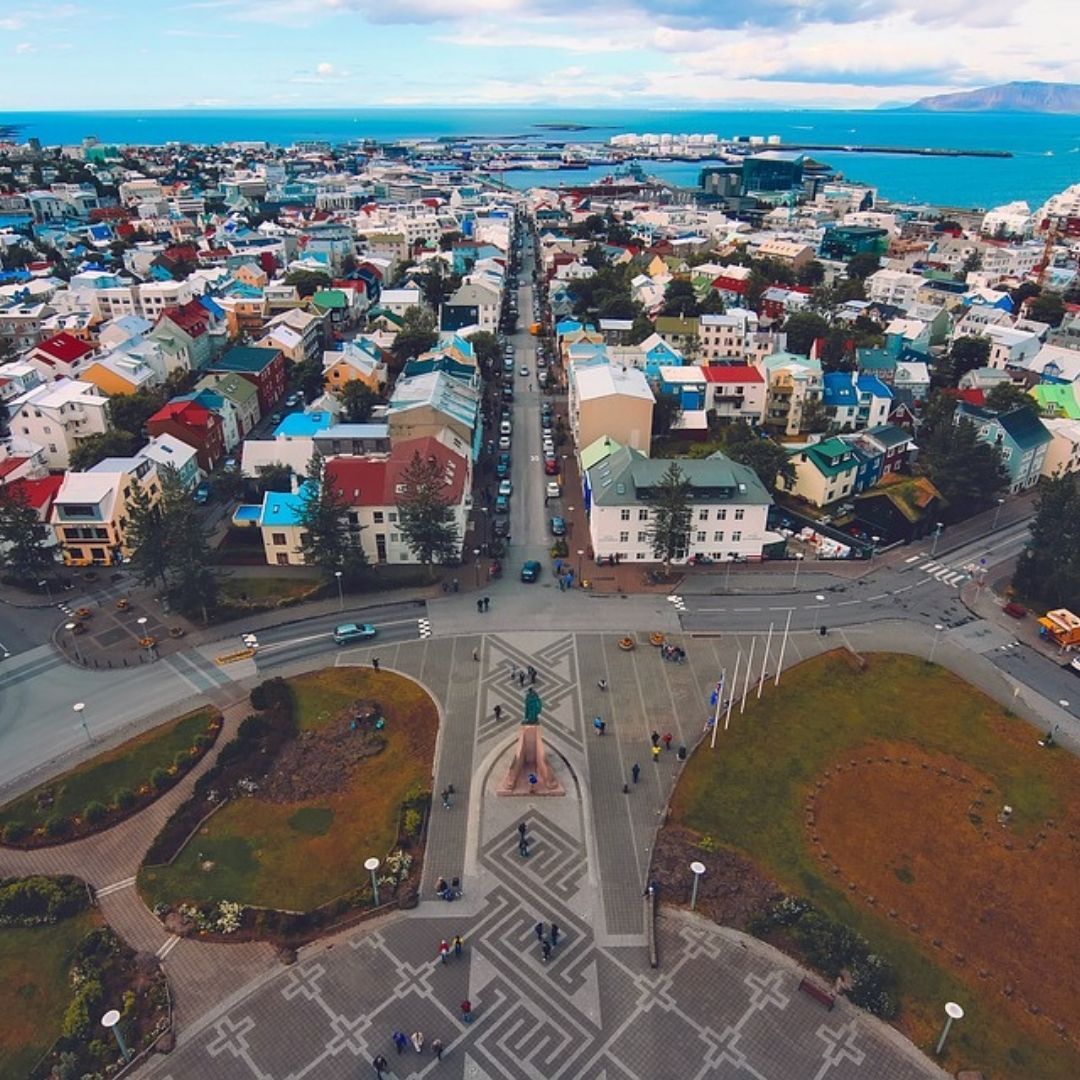
Image Credits: Pixabay
International Day Of Peace: Why Is Iceland Ranked As Most Peaceful Country Since 2008?
Others/World, 21 Sep 2021 10:10 AM GMT | Updated 21 Sep 2021 10:14 AM GMT
Editor : Palak Agrawal |
Palak a journalism graduate believes in simplifying the complicated and writing about the extraordinary lives of ordinary people. She calls herself a " hodophile" or in layman words- a person who loves to travel.
Creatives : Tashafi Nazir
For most people, journalism sounds hectic and chaotic. For her, it's a passion she has been chasing for years. With an extensive media background, Tashafi believes in putting efforts on presenting a simple incident in the most interesting way.
According to the 2021 Global Peace Index, published by the Institute for Economics and Peace, Iceland continues to remain the most peaceful country globally for the 13th consecutive year. Since the start of the index in 2008, Iceland has consistently dominated the top position.
The International Day of Peace is observed each year across the globe on September 21. Every year, the United Nations designates a theme to mark the day. This year, the theme is "recovering better for an equitable and sustainable world".
The UN General Assembly has announced the day devoted to strengthening peace ideals by observing 24 hours of non-violence and cease-fire. The appeal has been to pause local conflicts while the people are caught battling the COVID-19 pandemic.
It is also recognised as a day that celebrates the efforts of people and countries who work hard to promote peace and end rising conflicts.
History
The United Nations General Assembly established the International Day of Peace in 1981. It was officially celebrated a year later on the third Tuesday of September. However, after two decades in 2001, it unanimously voted to designate the day as a period of non-violence and cease-fire.
While many nations have desired a conflict-free and peaceful environment, a world with minimal conflict and crime still remains out of reach. But some countries have raised the bar and emerged as proportionately peaceful countries, with Iceland topping the list.
Why Is Iceland World's Most Peaceful Country?
According to the 2021 Global Peace Index (GPI), published by the Institute for Economics and Peace (IEP), Iceland continues to remain the most peaceful country globally for the 13th consecutive year. Since the start of the index in 2008, Iceland has consistently dominated the top position.
It is followed by New Zealand, Denmark, and Portugal. On the other hand, Afghanistan, Syria, Iraq, Yemen, and South Sudan continue to be the least peaceful countries on the list.
How Are Countries Ranked?
The GPI gauges worldwide peace using three broad themes: the level of safety and security in society, the extent of domestic or international conflict, and the degree of militarisation.
It identifies the most and least peaceful countries, trends in violence and conflict, and calculates the economic impact of violence. The Index is composed of 22 qualitative and quantitative indicators from highly respected sources and ranks 162 independent states, covering 99.6 per cent of the global population.
This honour is calculated using a number of factors like less crime rate, high levels of equality, less corruption, people's trust in police, low level of violent conflict in and out of the nation, and a cornucopia of other aspects.
Due to deterioration in the homicide rate and a small increase in military expenditure, Iceland recorded a slight dip in peacefulness this time. But the country score remains much more peaceful than the worldwide average on both these indicators.
The 163 countries and independent states are rated across three domains: Societal safety and security domain, Ongoing domestic and international conflict domain, and Militarisation domain.
In addition, the countries are ranked based on their economic cost of violence, where Iceland ranks 157th out of 163 countries.
Why Iceland?
Since 2008, the world has witnessed less peace. Europe remains the most peaceful region globally, although there was a slight deterioration in peacefulness. The continent consists of 13 out of the 20 most peaceful countries. Only two European countries do not make it to the top half of the index.
Iceland is not just peaceful, but also clean, safe, and worthy of travel!
Iceland scores a 1 out of 5 on militarisation. The country does not have a standing army, and even the police are unarmed there.
It scores 1.2 out of 4 on Safety and Security and 1 out of 5 on Ongoing Conflict. People treat each other equally, despite their sex, sexual orientation, or belief.
There is no 'class system', some people may be well-off than others, but they all live side by side and go to the same schools without any discrimination. The country is also ranked first in gender equality, the LGBTQ community is not looked down on and instead celebrated and religious clashes are significantly less in number, as most people are not very actively religious, although around 80 per cent population is still a part of the Lutheran State Church.
The country also enjoys record-low crime rates, an enviable education, and welfare system, and ranks among the top nations in terms of jobs and earnings and subjective sense of well-being.
The country has a well-functioning government, sound business environment, acceptance of the rights of others, good relations with neighbouring countries, high levels of human capital, equitable distribution of resources, among others.
Among the other European countries, Sweden is the best example of a country with a high positive peace, with countries like Afghanistan and Syria faring worst on both the Global Peace Index and the Positive Peace Index.
While Europe scored high as a region itself, France as a country dropped by two points at 60 out of 163.
Also Read: Pune Hospital Trains Transgender Persons To Act Swiftly During Road Mishaps
 All section
All section














